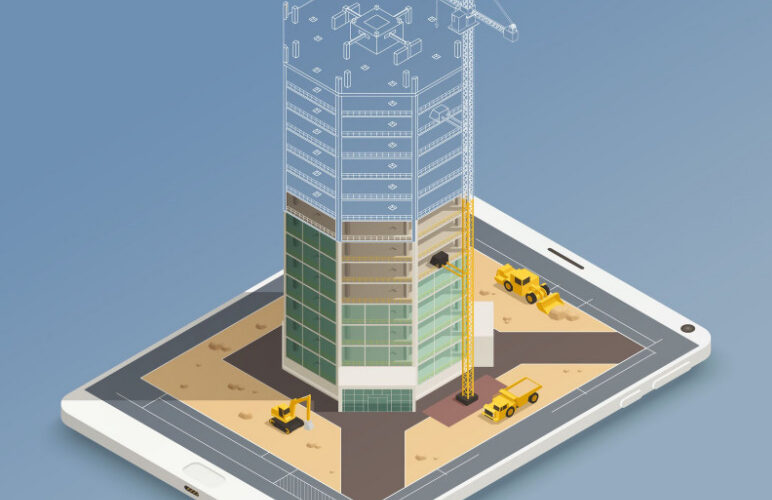Real Estate is one of the largest asset classes in the whole world. It is an appreciable form of investment as its value rises over time. Currently, Commercial real estate is facing some issues due to the onslaught of the coronavirus pandemic. Once you want to build a building you shoulld take architectural visualization and 3D rendering service, easy workflow and fast turnaround time Find out how CGI can boost your sales!
Many businesses are closing down because of the economic downturn, tenants are not paying their monthly rent on time, and office complexes are experiencing increasing vacancy rates amidst the ‘work from home’ culture.
Commercial real estate tokenization is a viable alternative in this regard as the traditional real estate industry has been suffering from issues like illiquidity, lack of transparency, high transaction costs, restricted access to investors, and long execution time frame. It can streamline the entire investing process and make it cost-effective for the buyer and seller to interact with each other. It ensures better crowdfunding opportunities, opens up new markets for investors, and ensures improved facilities for the users while exchanging their tokens.
How Real Estate Tokenization Can Be a Big Game-Changer in This Current Situation?
- More people will look to search for properties not physically but through dedicated online platforms.
- Many potential property investors will favour Real estate tokenization due to the greater transparency, sufficient liquidity, and global access that it offers.
- There could be a reduction in office space requirements in the future and there could be hybrid working models in place.
- Concerning retail, the costs of maintaining the property have increased and people’s shopping habits have changed due to the rise of E-commerce websites. Hence, non-essential shops are being forced to shut down as they have run out of business eventually.
- The demand for industrial properties like warehouses, factories, godowns, data centers, and manufacturing facilities are increasing in densely populated areas as products are being delivered even to remotest locations.
- Property tokens is an innovative method for investment as a substitute for Real Estate Investment Trusts (REITs) and Exchange Traded Funds (ETFs). It will always be liquid and its price will not fluctuate in times of market distress.
- Any real-world asset can be converted into a tradable digital asset by using distributed ledger technology (DLT) and smart contracts.
- The investors get access to a share of the profits, voting rights, dividends, cash flow, interest as well as voting rights when they buy those property tokens where the property actually acts as the collateral.
- Regulatory authorities like the Securities and Exchange Commission (SEC) and the European Securities and Market Authority (ESMA) have already recognized the potential of tokenization.
Some of the Factors to Take Into Account Before Taking Part in Tokenization
- The right business model should be chosen for tokenized asset management. This will ensure high benefits both by building a token and acting as a keeper of the token.
- The correct platform must be integrated for implementing Commercial real estate tokenization. It depends on the products or services being offered for sale, the size of the target audience, and the infrastructure involved to be set up.
- Adequate cybersecurity measures must be taken to thwart the chance of cyberattacks. The best cryptographic techniques must be utilized in the distributed ledgers.
- In the token economy, business processes are quick and immutable. Better quality of operations can be ensured by following compliance regulations related to KYC and AML.
The Main Advantages Offered by the Tokenization of Real Estate Asset
- It ensures that property investment is not just reserved for wealthy investors but even those investors with limited financial backing can participate in the process without facing any restrictions. It also indirectly creates a new source of revenue for property owners.
- If the property tokens are regulated by the well-defined laws passed by an authority, it can be included in pension funds and institutional funds. This adds a lot of credibility to the Tokenization of Real estate asset. It is a good alternative to investing your money in open-ended property funds if portfolio management and asset allocation are done well.
- The token will be updated with all the latest data on a real-time basis. The investor will know all the current information about the asset. This ensures faster execution of trades and lower fees.
- It is a low-cost opportunity for an individual to manage his equity/ debt portfolio efficiently. They can directly control the performance of their investments without relying on any intermediaries.
- Even illiquid assets can be tokenized boosting liquidity. This leads to an increase in market value if it is sold immediately.
- Digital property tokens can be bought and sold 24×7, unlike traditional security markets that operate only for limited hours a day. There are no bankers or brokers involved in the system.
- The transactions are processed instantly through the verified digital ledger. It is immutable and no one can alter it anytime. This creates more trust between the property buyers and sellers.
- Investors who prefer environment-friendly properties can make use of DLT to get accurate information about the carbon emission, energy consumption, and sustainability of the building.
- Public and private keys will be used to prove the ownership of real estate on a blockchain network.
- Smart contracts can take care of automating the compliance processes preventing any human errors.
The Different Hurdles to Tokenized Real Estate
- Uniform regulatory alignment is not present concerning the recognition of security tokens. The security laws vary from one jurisdiction to another leading to problems in the free exchange of security tokens globally.
- The absence of a proper legal framework, possibilities of scamming and hacking attacks can dent the confidence of the investors of security tokens. This could affect the growth of the token economy in the years to come. A legal framework creates a lot of trust for the users.
- There is a lack of a well-defined code of conduct and finance companies have to analyze their business architecture fully so that they do not expose their investors to unscrupulous practices.
As seen above, Real Estate Tokenization can create better opportunities in the future and solve most of the present problems through pragmatic solutions. It will deliver improved results for various business domains and lead to a rise in user satisfaction and comfort.






Much obliged for sharing this significant article. It’s truly brilliant article about this knoweldge. Continue to compose that sort of articles. It’s extraordinary article.